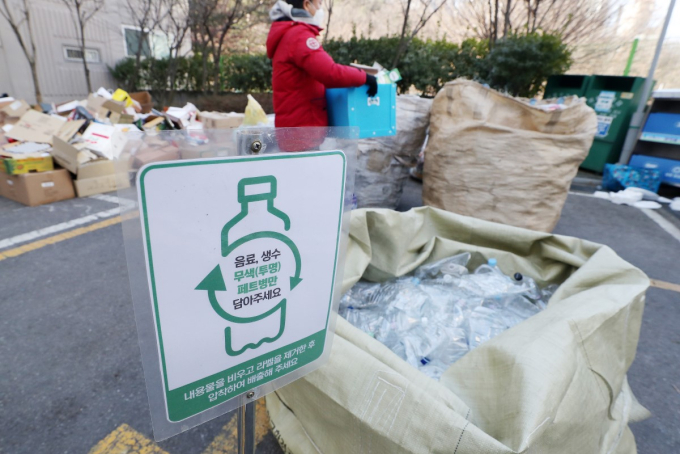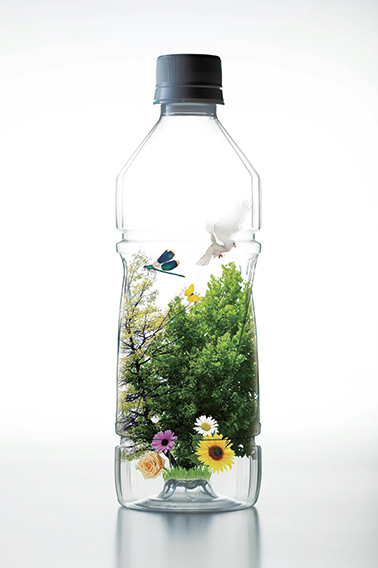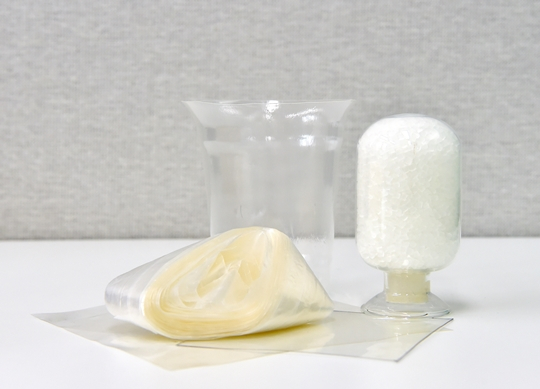Bioplastics
S.Korean chem firms hasten shift to bioplastics amid China's plastic ban
By Jan 25, 2021 (Gmt+09:00)
3
Min read
Most Read
Samsung shifts to emergency mode with 6-day work week for executives


Alibaba eyes 1st investment in Korean e-commerce platform


Blackstone signs over $1 bn deal with MBK for 1st exit in Korea


NPS loses $1.2 bn in local stocks in Q1 on weak battery shares


OCI to invest up to $1.5 bn in MalaysiaŌĆÖs polysilicon plant



South KoreaŌĆÖs chemical industry is in crisis mode as China declares war on plastics, likely to deliver a heavy blow to Korean companies that boomed last year on the rising demand for plastics in the wake of the pandemic.
In major Chinese cities, the government has banned the use of single-use plastic bags and tableware, as well as plastic wrapping for parcels, according to the chemical industry on Jan. 24. Those who fail to abide may be fined up to around $15,400.
The tough stance demonstrates the Chinese governmentŌĆÖs resolve to reduce plastic pollution. The country's food and beverage companies and supermarkets have all stopped using plastic, and delivery services have transitioned to eco-friendly wrapping.
The plastic ban in China is set to spread nationwide in 2026, increasing the likelihood of price cuts on basic materials used to make disposable plastics, such as polyvinyl chloride (PVC) and polyolefin (PO), amid decreased demand.
China's measures have rattled Korean petrochemical companies, which are likely to be affected by the sharp drop in the demand for disposable plastics. China has been the worldŌĆÖs leading plastic maker and the biggest user, with Korean companies heavily dependent on the country for exports.
ŌĆ£Korean companies are focusing on high-value-added product materials rather than general products such as single-use plastics, so they wonŌĆÖt be suffering immediate harm,ŌĆØ said a chemical industry official.
However, a price cut brought on by weakened demand will be inevitable in the long term, industry watchers say.

KOREAN PLAYERS RUSH TO DEVELOP BIODEGRADABLE PLASTICS
Korean industry players say ChinaŌĆÖs policy will determine the future of plastics. At the same time, Korean chemical companiesŌĆÖ development pace for bioplastics will determine their survival.
Bioplastic is made by using renewable biomass sources and microorganisms. While petroleum-based plastic takes over 500 years to decay, bioplastics will completely decompose in six months to a year.
Recently, Korean companies have been devising plans to invest in bioplastics. In 2012, Lotte Chemical Corp. was the countryŌĆÖs first company to successfully develop bioplastic by using vegetable materials, including sugar cane. Backed by its achievement, the company has been focusing on expanding the bioplastic market.
Last May, materials maker SKC participated in bioplastic commercialization and demonstration activities led by the Korean government. The company aims to begin mass production of high-strength bioplastic polybutyrate (PBAT) this year. PBAT is often used to create biodegradable packaging materials.

Also, LG Chem Ltd., which developed the world's first 100% biodegradable material to replace plastic, is continuing the research process with a goal to commercialize the material by 2025. Previously, biomaterials had to be mixed with other additives to boost biodegradability, but the company's newly developed material can stand alone to deliver functions identical to synthetic resins.
This year, CJ Cheiljedang Corp. will set up a production line in Indonesia to generate an annual 5,000 tons of polyhydroxyalkanoates (PHA). PHA is an eco-friendly bioplastic material that decomposes 100% in seawater.
Samyang Innochem Corp. plans to finalize the expansion for its isosorbide plant in the second half of the year. Isosorbide is a raw material used to make bioplastic. Hanwha Solutions Corp. also entered an agreement with the Korea Institute of Energy Research on Jan. 15 to jointly develop bioplastics.
The annual sale volume for bioplastics has surged from 101 tons in 2017 to 1,528 tons in 2019. Last year, around 1,487 tons of bio PET were sold between January and September, and sales are estimated to have topped 2,000 tons over the entire year.
┬Ā
Write to Kyung-min Kang at kkm1026@hankyung.com
Danbee Lee edited this article.
More to Read
-
 Renewable energyLG Chem to power Wuxi plant with renewable energy bought from China
Renewable energyLG Chem to power Wuxi plant with renewable energy bought from ChinaDec 14, 2020 (Gmt+09:00)
1 Min read -
 Eco-friendly recylingFrom used coffee grounds to tasty rice chips
Eco-friendly recylingFrom used coffee grounds to tasty rice chipsDec 05, 2020 (Gmt+09:00)
3 Min read -
 ESG managementSK Hynix and other affiliates to become 100% powered by renewable energy
ESG managementSK Hynix and other affiliates to become 100% powered by renewable energyNov 02, 2020 (Gmt+09:00)
2 Min read -
 LG Chem develops world's first biodegradable plastic alternative
LG Chem develops world's first biodegradable plastic alternativeOct 20, 2020 (Gmt+09:00)
2 Min read
Comment 0
LOG IN


